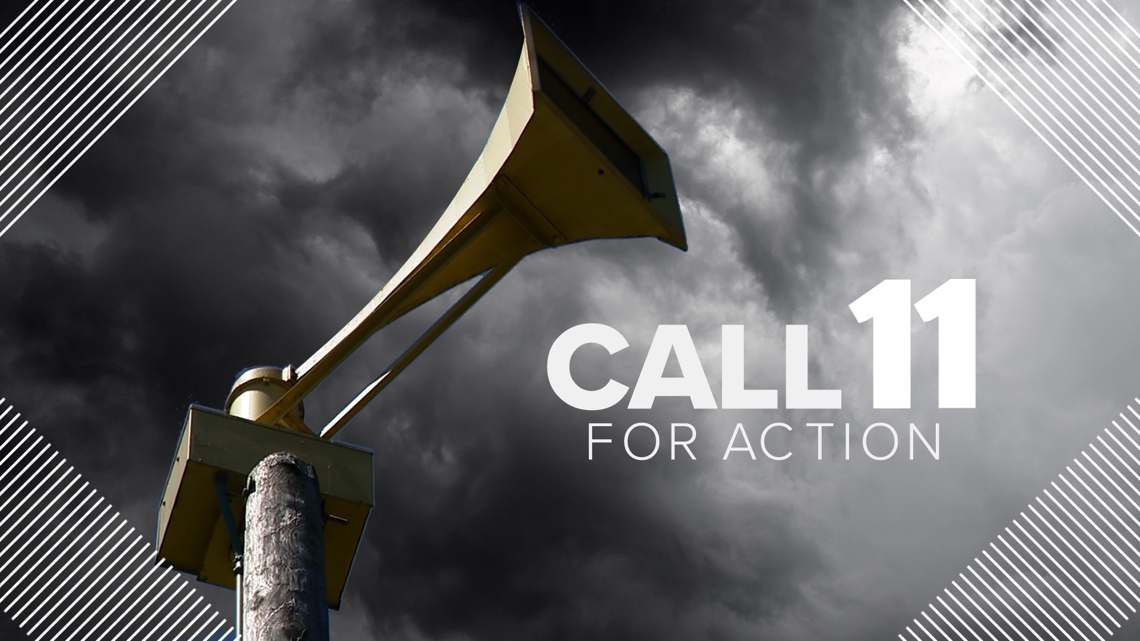Storm spotter says village's outdoor warning sirens did not sound until 10 minutes after NWS tornado warning
Andrew Morris is a SKYWARN storm spotter and questions why the village of Deshler's sirens did not sound immediately upon the warning. Andrew Morris, a SKYWARN storm spotter, has questioned why the village of Deshler, Ohio, did not sound its outdoor warning sirens immediately after a tornado warning. He claims that the sirens were not set off until 10 minutes after the NWS confirmed it was a confirmed tornado. Clint Smith, a council member on the fire department, defended the decision, stating that if you set them off early, people would return out before the storm even hits. The National Weather Service recommends that sirens should be activated for a tornado Warning or a tornado or funnel cloud, and should be sounded for three to five minutes, resounding for the duration of the threat. Messages left for Deshler Fire Chief Willis Croninger and multiple inquiries from the county commissioner about the protocol used in Deshler's sirens have not been returned.

Publicado : hace un año por Melissa Andrews en Weather
Andrew Morris is a SKYWARN storm spotter and questions why the village of Deshler's sirens did not sound immediately upon the warning.
"Before the sirens went off, I was driving through town to spot stuff and there was still a bunch of people outside looking around because the sirens weren't going off," Morris said. "It was a confirmed tornado and Clint Smith, a council member who's on the fire department, tried to tell me they didn't set them off because it wasn't observed. But when I showed him the message from the NWS, it said that it was a confirmed event."
Call 11 for Action reached out to Smith for an explanation as to why the sirens were not sounded until several minutes after the tornado warning was issued. Smith said, "I have no comment."
In messages exchanged with Morris on social media, Smith said, "I have explained this to you once already! If you set them off to (sic) early people come back out before the storm even hits. We sat (sic) the sirens off 10 minutes before any confirmed tornado. And then we sat (sic) them off again once we had a visual funnel cloud. If you set them off every time there is a storm people will begin to ignore them. You are not the only trained storm watcher in the world. We have all taken classes on this."
According to the NWS, siren activation is recommended for a "Tornado Warning issued by the National Weather Service and/or a tornado or funnel cloud reported by a trained spotter. Sirens should be sounded for three to five minutes, resounding for the duration of the threat (every 10 to 15 minutes is recommended)."
"I've tried everything. I've went to meetings, I've talked to them they tell me it's on the sheriff's office, the sheriff tells me it's on them. It's just back and forth," Morris said. "I got a letter from the county commissioner saying, it's not them it's the village. The village says no, it's them."
Multiple messages left for Deshler Fire Chief Willis Croninger as to what protocol is used in Deshler for activation of the sirens, as well as why they were not sounded immediately after the tornado warning was issued, were also left unreturned.
"We had already seen it on my telephone and her telephone, and I said, 'We have to get downstairs.' I pretty much knew," Rayle said. "And then while I'm doing all that, the sirens, we heard them. But they should have went off sooner."
"If there's a tornado that's being reported, being confirmed, the sirens should have been set off, ideally, a few minutes ago," Burchfield said. "You also have the issue of lead time. Minutes are everything when it comes to severe weather and protecting lives and property."
"There are some issues with them and as a result, I think it's important to have multiple modes of getting that weather information," Burchfield said. "Of course, your local TV station is one, the WTOL 11 Weather app is another, even a NOAA weather radio at home is a great way to get those alerts."
Temas: Tornadoes
